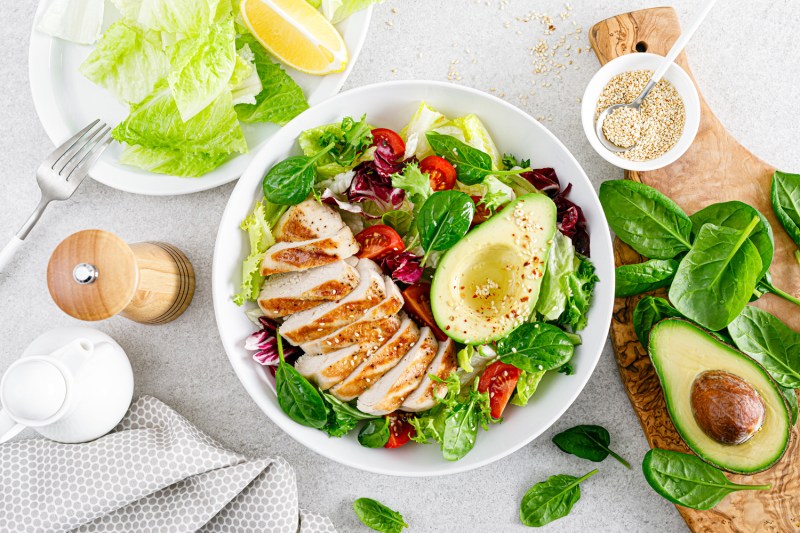Now that you’re interested in starting a ketogenic diet, you probably have a lot of questions about what foods to include in your diet and what foods you should avoid eating. Naturally, your focus is on consuming nutrient-rich foods, so it seems you can’t go wrong with fresh fruits and vegetables, right?
However, we want to take a closer look at different vegetables and fruits to understand how they fit into the ketogenic diet. Each food has unique characteristics that can determine whether they pass the test. So, if you enjoy eating carrots and you’re wondering, “Are carrots keto?” — you can get your answer by taking a deep dive into carrot nutrition facts and understanding how they impact your diet and health.
What is the ketogenic diet?

Our first step is to understand the ketogenic diet. This diet is characterized as being low in carbohydrates and higher in protein and fats. Consuming fewer carbs and increasing your consumption of healthy fats is designed to push your body into ketosis, in which fat is burned for energy. When your body is in ketosis, the liver produces ketones that can supply energy to the brain. Initially, this dietary pattern was used to modulate seizures and epilepsy, and it has since been used for weight loss purposes.
What makes a food keto-friendly?

We can define keto-friendly foods as low-carb foods. Knowing the caloric and macronutrient content can help you determine your food options. Your total carbs should be between 25 and 50 grams per day, with most of your calories obtained from fat and protein. Some foods contain 50 grams of carbs in just one serving, so you should avoid foods like that.
Are carrots keto?

Carrots are not necessarily keto-friendly food options, as they are considered starchy vegetables. These vegetables, like potatoes and beets, along with sugary fruits, are not keto foods because they are high in carbohydrates. These foods may be avoided or at least very limited because they provide more carbs than you want to take in on a keto diet.
Nutritional information of carrots

Looking deeper at the nutritional content of carrots will tell you about the benefits of carrots while revealing why the makeup of this vibrant vegetable makes it more likely to be avoided on the keto diet. While it is packed with many vitamins and minerals, the carbohydrate content of carrots is greater than the protein content, while the fat content is very little by comparison.
1 cup of carrots contains the following nutrients:
- Calories: 52.5 grams
- Protein: 1.19 grams
- Fat: 0.3 grams
- Carbohydrates: 12.3 grams
- Fiber: 3.58 grams
- Sugar: 6 grams
What nutrients are carrots rich in?

This root vegetable is a great source of vitamins and minerals that will benefit your health. The major treat you’ll find in carrots is vitamin A, and it’s present in the form of beta-carotene. This slightly sweet veggie is bursting with so much vitamin A that just having a cup of carrots as a snack during the day can provide you with more than four times the recommended daily intake. Additionally, it is a good source of potassium, vitamin K, and B vitamins.
Benefits of regularly including carrots in your diet

Vision and eye health
By regularly eating carrots and getting enough vitamin A, also called retinoid, you’ll be protecting your eye health, as night blindness and other ocular issues are more common in the presence of vitamin A deficiency.
Carrots and other orange treats, like pumpkin and sweet potatoes, contain beta-carotene pigment that converts into vitamin A retinol in the body, so this pigment is considered a provitamin A carotenoid. Vitamin A is a component of rhodopsin found in the retina of the eyes and has antioxidant properties that can prevent the oxidative damage that causes macular degeneration.
Immune system protection
Another benefit of consistently keeping carrots in your diet is that carotenoids have antioxidative properties. In this capacity, they help protect cells from damage and may have a role in protecting against cancer cell growth. This mechanism also protects the heart from oxidative damage that may lead to heart disease, and the antioxidant properties also boost its role in immune function and fighting infections, which works to keep you healthy and strong.
Anti-diabetic properties
Carrots consist of potassium, fiber, and many phytonutrients that play a role in blood sugar regulation. There has been some suggestion that lower carotenoid levels have been associated with higher blood glucose levels, so eating more carrots may give you the balance you need. Also, the fiber content of the carrots can keep you feeling full for longer periods, which helps control cravings and prevent excessive weight gain.
Frequently asked questions

How many carrots can I eat on keto?
If you eat carrots on the keto diet, you should have them in moderation. Try having half a cup of carrots as a snack once a week or adding a few carrots to your soups. You don’t want to go overboard, as the carbs will add up.
What vegetables are keto?
Note that most low-carb vegetables are keto, so these are the ones you want to include in a keto-friendly diet. Try eating zucchini or spaghetti squash. Also, freshen up your plate with leafy greens. The vegetables that have lower carb content, typically the greens, are going to be your best bet.
Can I eat carrots on a low-carb diet?
On a low-carb diet, you can eat carrots in moderation. Carrots and other root vegetables like parsnips and beets consist of more starch than cruciferous vegetables like kale, cauliflower, and broccoli.




